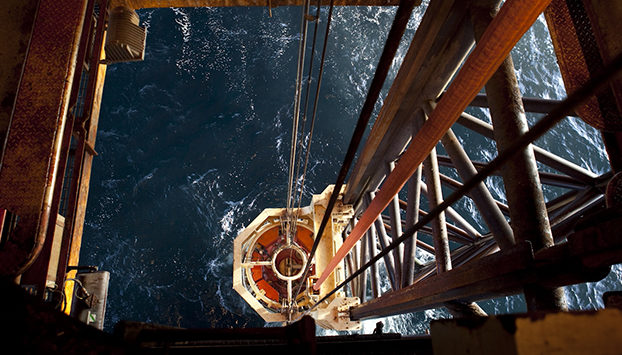
North Sea crudes are trading at the biggest discount to the regional benchmark in more than six years amid a surplus of cargoes.
Forties, the largest of the benchmark North Sea crudes, sold Thursday at the steepest discount to Dated Brent since 2008, according to a Bloomberg survey of brokers and traders monitoring the Platts trading window.
Ekofisk traded Wednesday at the lowest level since at least 2009. Delayed maintenance work unexpectedly increased the volume of North Sea crude available in June, while unsold Nigerian cargoes remain for July, according to Eugene Lindell, a senior analyst at Vienna-based consultant JBC Energy GmbH.
“There’s simply a lot of sweet crude out there in the Atlantic basin,” Lindell said by phone Thursday. “West African crude is under a lot of pressure right now.”
The surplus of Atlantic crude cargoes is the latest sign that an oversupply on global markets has not yet been resolved.
The world is still pumping about 1.9 million barrels a day more than it needs, according to Goldman Sachs Group Inc.
Oil’s recovery from a six-year low faltered this month near $65 a barrel amid speculation the glut will persist.
A cargo of Forties crude sold Thursday at a discount of $1.30 a barrel to Dated Brent, the lowest level since December 2008, according to the survey.
A cargo of Ekofisk crude traded at $1.20 a barrel below Dated Brent Wednesday, the lowest level since at least July 2009, when Bloomberg began compiling data for the grade.
Platts, a unit of McGraw Hill Financial Inc., publishes energy and commodity prices. Dated Brent is its daily benchmark assessment of the price of light North Sea crude.
Brent, Forties, Oseberg and Ekofisk crudes are all used to formulate the Dated Brent price. The cheapest of the grades, typically Forties, sets the marker.
Bloomberg LP, the parent of Bloomberg News, competes with Platts and other companies in providing energy-market news and information.
The deferral of a maintenance shutdown from June to October at Buzzard, the largest field that feeds into the Forties pipeline system, led to an unexpected increase in the number of cargoes offered for sale in June, according to four traders familiar with the matter, who asked not to be identified because the information is private.
A surplus of Nigerian crude, which is of similar quality to North Sea grades, is also putting downward pressure on prices, according to two traders with knowledge of the matter.
About 20 out of 68 Nigerian oil cargoes are still available for June, with another 60 cargoes for loading in July on sale, the traders said.
Prices for Forties could increase once maintenance ends on June 8 at the only jetty able to load the grade onto supertankers, said JBC’s Lindell.
“After that, we should get more interest from Asia for long-haul VLCC cargoes, which should then help clear the market a little bit,” he said, referring to Very Large Crude Carriers able to transport 2 million barrels.
Recommended for you
